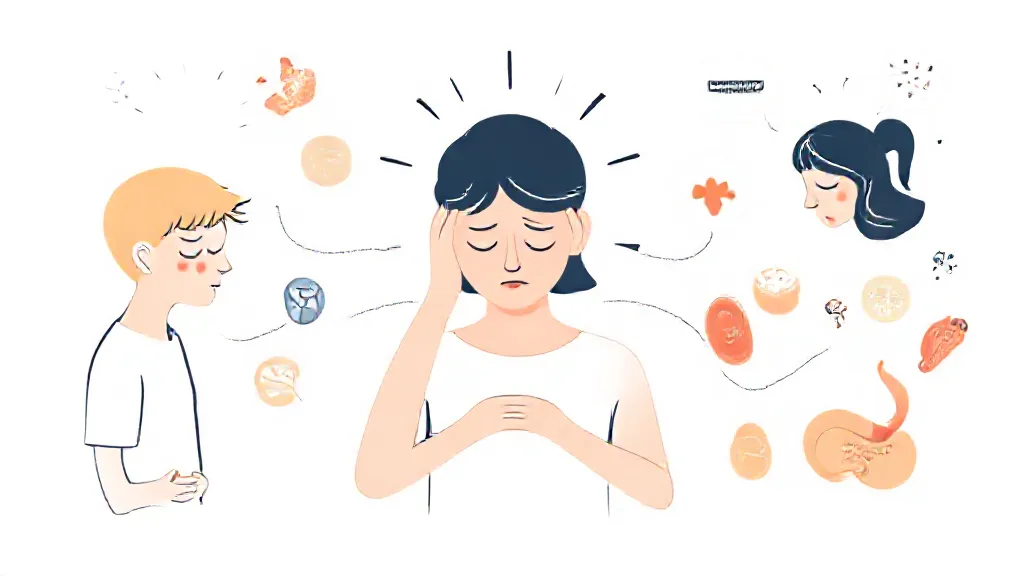Emotional stress is a common experience that can significantly impact an individual's physical health. Understanding where and how emotional stress manifests physically is crucial for recognizing the signs and taking proactive steps towards better health. Emotional stress can arise from various sources, including work pressure, relationship issues, and life changes.
The body responds to these stressors in multiple ways, often leading to physical symptoms that can be both acute and chronic.
The Mind-Body Connection: How Emotions Affect Physical Health
The connection between mind and body is well-documented in both scientific research and holistic health practices. Emotional stress activates the body's stress response, leading to the release of hormones like cortisol and adrenaline.
These hormones prepare the body for a 'fight or flight' response, but when stress becomes chronic, this constant state of alert can lead to detrimental physical effects. For instance, prolonged elevation of cortisol levels is linked to weight gain, high blood pressure, and decreased immune function.
Common Physical Symptoms of Emotional Stress
Emotional stress can manifest in various physical symptoms, including headaches, muscle tension, fatigue, and gastrointestinal issues.
Tension headaches are particularly common, often resulting from tightened muscles in the neck and scalp due to stress. Similarly, muscle tension can lead to chronic pain conditions, such as fibromyalgia, where the body remains in a state of heightened sensitivity. Fatigue is another common symptom, as the body expends significant energy managing stress, leaving individuals feeling drained and exhausted.
The Role of the Immune System in Stress Response
The immune system is heavily influenced by emotional stress. Chronic stress can suppress the immune response, making individuals more susceptible to infections and illnesses. Research has shown that individuals under high stress are more likely to experience colds and other viral infections.
Furthermore, stress can exacerbate autoimmune conditions, where the immune system mistakenly attacks healthy cells, leading to increased inflammation and discomfort.
Digestive Issues Related to Emotional Stress
The gut-brain connection is a significant aspect of how emotional stress manifests physically. Stress can lead to various digestive problems, such as irritable bowel syndrome (IBS), acid reflux, and stomach ulcers.
The gastrointestinal tract is sensitive to emotional states, and stress can alter gut motility and increase the production of stomach acid. This can result in discomfort, bloating, and changes in appetite, highlighting the importance of managing emotional health for digestive well-being.
Long-Term Effects of Unmanaged Emotional Stress
If left unmanaged, emotional stress can lead to long-term health issues.
Chronic stress is linked to cardiovascular diseases, including heart attacks and strokes. The constant strain on the heart and blood vessels can lead to increased blood pressure and inflammation, both of which are risk factors for heart disease. Additionally, mental health disorders such as anxiety and depression can arise from prolonged emotional stress, creating a vicious cycle that further impacts physical health.
Coping Mechanisms and Stress Management
Recognizing the physical manifestations of emotional stress is the first step towards effective management. Implementing coping mechanisms such as mindfulness, meditation, and regular physical activity can help mitigate the effects of stress. Engaging in hobbies, maintaining social connections, and seeking professional help through therapy can also be beneficial.
These strategies not only address the emotional roots of stress but also promote physical health and resilience.
The Importance of Seeking Professional Help
If emotional stress becomes overwhelming, seeking professional help is crucial. Mental health professionals can provide support and strategies tailored to individual needs.
Therapy options, such as cognitive-behavioral therapy (CBT), can help individuals reframe their thoughts and develop healthier coping mechanisms. Additionally, some may benefit from medication to manage symptoms of anxiety or depression, ensuring a holistic approach to health.
Conclusion: Prioritizing Emotional and Physical Health
In conclusion, emotional stress has profound physical manifestations that can significantly impact overall health.
By understanding the connection between emotional and physical well-being, individuals can take proactive steps to manage stress and improve their quality of life. Prioritizing both emotional and physical health is essential for achieving a balanced and fulfilling life, underscoring the importance of awareness and self-care in today's fast-paced world.
